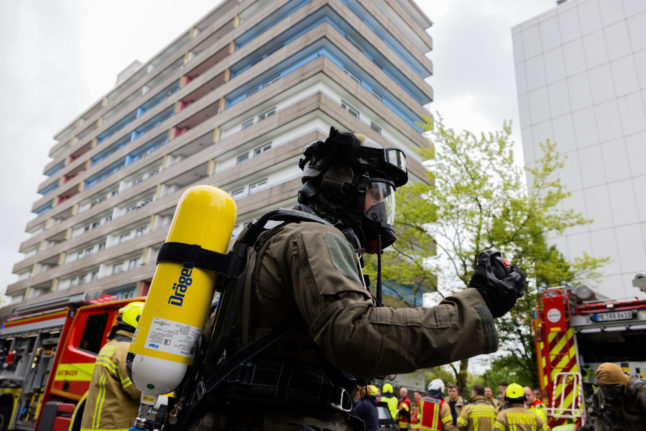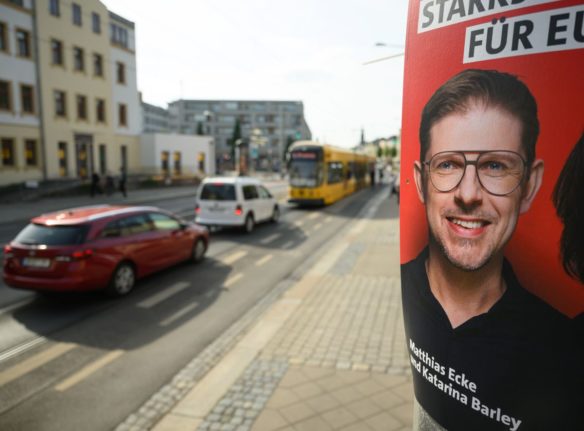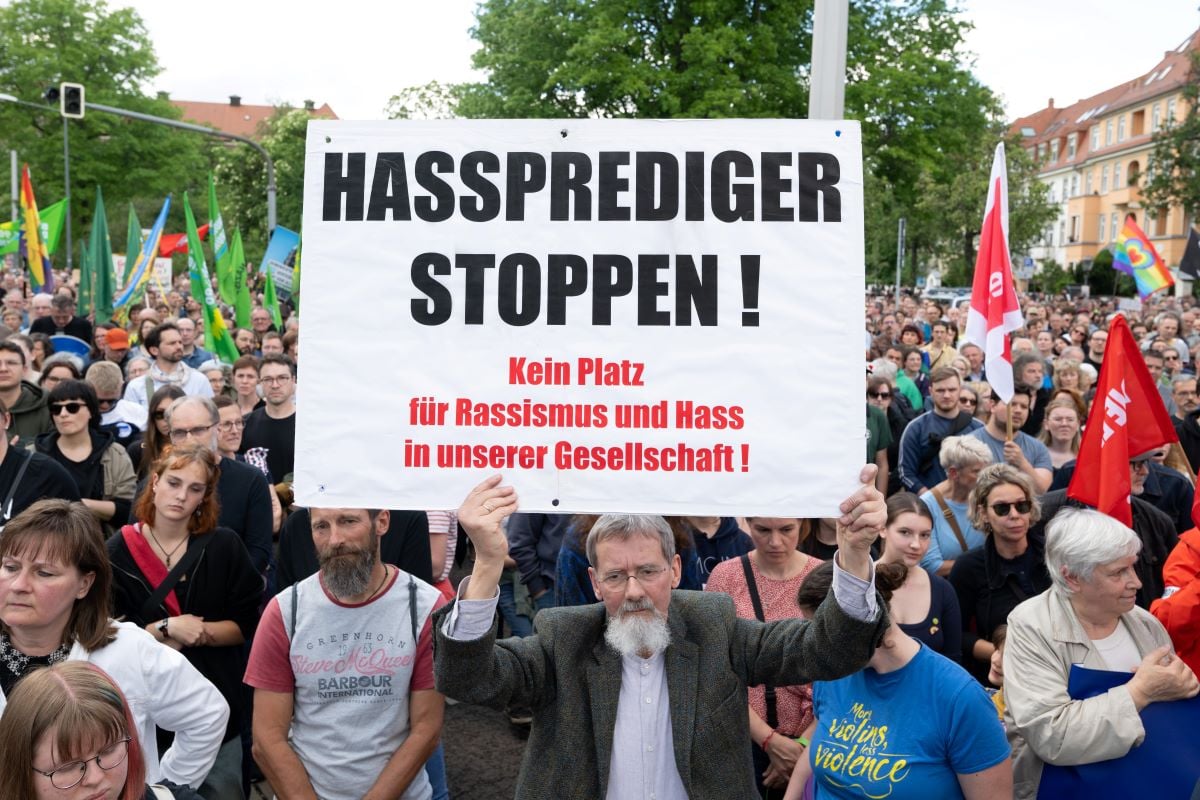The blast happened inside an apartment in the high-rise building in Ratingen, in North Rhine-Westphalia state, police said on Twitter.
Ten firefighters and two police officers were injured, some of them seriously, Herbert Reul, North Rhine-Westphalia’s interior minister, told reporters.
Emergency services had arrived after receiving a distress call.
The door of the flat was open when police got to the site but the blast then ensued.
“The man, after he caused this explosion, closed the door again, retreated and started to set the place on fire,” said Reul.
A lifeless body was also found in the flat, Reul said, adding that it may be that of the suspect’s mother.
Police on Twitter referred to a “major operation” at the site.
The flat had apparently been doused with petrol or another flammable substance, Bild daily said.
The arrested man was a suspected Covid denier, according to Der Spiegel magazine.
Reul said it was “incomprehensible” to him that police officers and firefighters went on a mission to help and “ended up risking their lives”.
READ ALSO: Three injured in blast at Lidl’s German headquarters




 Please whitelist us to continue reading.
Please whitelist us to continue reading.
Member comments